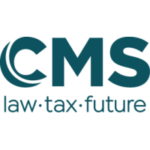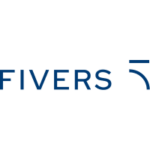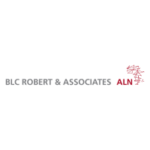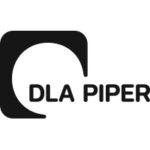-
What are the national authorities for banking regulation, supervision and resolution in your jurisdiction?
The Ministry of General Government Affairs and Finance is the competent governmental authority relevant for financial regulation in Liechtenstein and is officially headed by the Prime Minister.
The relevant supervisory authority of Banks is the Financial Market Authority Liechtenstein (FMA). The legal mandate of the FMA is to ensure the stability of the Liechtenstein financial market, the protection of clients, the prevention of abuses and the implementation of and compliance with the recognized international standards (Financial Market Supervision Act). The FMA ensures client protection by, inter alia, continuously verifying the liquidity and capital of banks, the appropriateness of risk distribution, and the professional and personal qualifications of persons serving on boards of directors and management.
-
Which type of activities trigger the requirement of a banking licence?
Liechtenstein banks, financial holding companies and mixed financial holding companies are regulated by the Liechtenstein Banking Act of 5 December 2024 (BA), in force since 1 February 2025, and the Banking Ordinance (BO). Under the BA the following activities trigger the requirement of a banking license:
- the acceptance of deposits and other repayable funds (deposit business);
- the lending of funds to an unspecified group of borrowers (lending business);
- the custody and administration of financial instruments for others (custody business);
- the assumption of sureties, guarantees and other liabilities for third parties, provided that the liability assumed is for monetary benefits (guarantee business);
- the issue, administration and collection of bills of exchange, cheques or traveller’s cheques, provided that this does not constitute a payment service as defined in the Payment Services Act (cheque and bill of exchange business);
- the purchase of bills of exchange and cheques (discounting business);
- trading for its own account or for the account of third parties in foreign exchange, cheques or bills of exchange (foreign exchange business);
- the ongoing purchase of claims based on framework agreements with or without recourse (factoring business);
- the issuance of covered bonds under the European Covered Bond Act; and
- the execution of on-balance sheet banking transactions.
Liechtenstein has implemented the rules and regulations according to EU standards. Reference is made to the guidelines of the European Banking Authority (EBA).
-
Does your regulatory regime know different licenses for different banking services?
The Liechtenstein Banking Act regulates the licensing requirements for banks and financial institutions. Pursuant to Art. 16 para. 1 BA, companies domiciled in Liechtenstein that intend to conduct banking business on a commercial basis require a license from the FMA. The law does not explicitly distinguish between different types of licenses for different banking activities. Rather, a single license is required for the commencement of business as a bank, which allows the bank to carry out the banking transactions defined in the law.
Under certain conditions, an investment firm may also apply for a banking license under the BA. The licensing procedure is the same as that for a bank.
Further, the BA regulates the licensing requirements, conditions and procedure for financial holding companies and mixed financial holding companies, which differ from those for banks.
-
Does a banking license automatically permit certain other activities, e.g., broker dealer activities, payment services, issuance of e-money?
Banks require a license from the FMA to commence business activities. Banks may carry out the banking business activities listed in the BA on a commercial basis. Banking activities include, for example, accepting deposits and other repayable funds, lending of funds to an unspecified group of borrowers or providing sureties, guarantees and other forms of liability for third parties, provided these are in the form of cash payments. Banks whose license covers the provision of banking activities may also provide securities services and ancillary services within the meaning of the BA as well as payment services in accordance with the Payment Services Act and issue e-money in accordance with the E-Money Act.
Under the BA each application for a license shall be accompanied by a business plan indicating in particular the type of business envisaged and the organizational structure of the bank. The license issued by the FMA is based on the defined specific business model and scope of services of the business plan and does not automatically cover all bank activities.
-
Is there a “sandbox” or “license light” for specific activities?
Within the scope of the BA, there is no specific sandbox model or licensing light, except for the different licenses as explained above. However, there are specific laws for other financial services such as e-money or payment institutes. Furthermore, Liechtenstein is well known for its “blockchain law”, regulating the registration and ad-hoc supervision of the categories of service providers which provide their services on TT systems (e.g. blockchain). Accordingly, the FMA has established a FinTech competence centre and is known to support and accompany FinTechs during the licensing process as well for its constructive exchange with innovative financial service providers.
-
Are there specific restrictions with respect to the issuance or custody of crypto currencies, such as a regulatory or voluntary moratorium?
As already mentioned above, Liechtenstein is quite known as a crypto and FinTech friendly jurisdiction. The research and development of crypto-based business models and financial solutions are welcome and supported by politics and the FMA.
With the creation of the so called “Blockchain-law” (i.e. the Law on Tokens and TT Service Providers (TVTG)), the registration and ad-hoc supervision of categories of service providers which provide their services on TT systems (e.g. blockchain) has been regulated. The law also implements the FATF recommendations, which provide for supervision under the Due Diligence Act (DDA) for such services.
Transactions in crypto-currencies or other tokens may be subject to licensing requirements, as far as they fall within the scope of existing financial markets regulation, e.g. if the respective currency qualifies as financial instrument or security under Liechtenstein law. Crypto-currencies do not constitute an official currency, but, depending on the specific design of the token or coin, may qualify as security, financial instrument or other forms of asset as the case may be. Therefore, sales or the issuance of token, which qualify as securities under Liechtenstein law, have to comply with the respective legal framework for a public offering of securities. Other potentially applicable rules or regulations depend on the individual circumstances, business activity and instruments involved.
-
Do crypto assets qualify as deposits and, if so, are they covered by deposit insurance and/or segregation of funds?
The Law on Deposit Guarantee and Investor Compensation at Banks and Securities Companies defines the term “deposit” as credit balances that arise from amounts remaining in an account or from interim positions in banking transactions under the BA and that are to be repaid by the bank in accordance with the applicable legal and contractual provisions, including fixed-term deposits and savings deposits.
Since cryptocurrencies are not legal tender and there is generally no obligation on the part of a bank to repay them in fiat currency, they do not qualify as deposits in the sense of deposit protection and are not covered by the deposit insurance.
-
If crypto assets are held by the licensed entity, what are the related capital requirements (risk weights, etc.)?
The CRR (EU) No 575/2013 is directly applicable in Liechtenstein. For the regulatory classification of assets and therefore also crypto-assets, Art. 24 No. 1 CRR refers to the “applicable accounting framework”. According to Art. 4 para. 1 No. 77 CRR, a distinction must be made in regard to the “applicable accounting framework” as to whether an institution is subject to the IAS Regulation (Regulation (EC) No. 1606/2002) or the Bank Accounts Directive (Directive 86/635/EEC). This means that a distinction must be made between banks that prepare their accounts in accordance with the International Financial Reporting Standards (IFRS) and banks that prepare their accounts in accordance with the nationally implemented provisions of the Bank Accounts Directive (BAD), namely the Banking Act (BA) and the Banking Ordinance (BO).
There are no specific IFRS rules for cryptocurrencies. How they are accounted for therefore depends on the use and economic purpose of the crypto assets held. If a bank holds cryptocurrencies as a long-term investment and does not engage in active trading, they can be accounted for as intangible assets within the meaning of IAS 38.
There are also no specific provisions for cryptocurrencies in national accounting law. Liechtenstein banks that prepare their balance sheets in accordance with the BAD account for their own crypto holdings as intangible assets or financial instruments.
Art. 92 para. 1 lit. a CRR requires institutions to have a Common Equity Tier 1 (CET1) capital ratio of 4.5 %. Art. 36 para. 1 lit. b CRR states that “intangible assets” are to be deducted from CET1. According to Art. 4 (1) no. 115 CRR, the term ”intangible assets” has the same meaning in the CRR regime as in the applicable accounting framework. Therefore, both intangible assets within the meaning of IAS 38 and intangible fixed assets within the meaning of the Banking Regulation are to be recorded as “intangible assets”. Therefore, assets held in crypto are also considered ”intangible assets” and must be deducted from CET1 in accordance with Art. 36 (1) (b) CRR. In both cases, crypto assets are to be deducted from capital in the balance sheet of the individual banks.
Cryptocurrencies are generally classified as risky assets, which results in correspondingly high capital requirements for banks holding such assets. In Liechtenstein, there are currently no specific national risk weights for cryptocurrencies in bank balance sheets. The specific capital requirements for banks with regard to cryptocurrencies are determined by the FMA, which is guided by international standards.
-
What is the general application process for bank licenses and what is the average timing?
The procedure for obtaining a banking license in Liechtenstein is regulated by the BA and the requirements of the FMA. License applications must be submitted to the FMA, which subsequently assesses the applications to a comprehensive legal and financial review.
The FMA offers a voluntary and preliminary informal review process. Before submitting the application to the FMA, it may be subject to a preliminary review (draft of the definitive license application) without original documents. The application for preliminary review must be structured in the same way and contain the same information and documents as the definitive application. But only significant partial aspects are checked for “red flags” in the preliminary informal review. Upon receipt of the final license application, the FMA issues an acknowledgement of receipt confirmation. The license to operate a bank is only granted if all the legal requirements according to the BA (including legal form, registered office, guarantee of proper business activity, articles of association and organization) are met. If the license is granted, the FMA issues a corresponding decree.
The duration of the approval procedure depends primarily on the conclusiveness and completeness of the information and documents provided within the application. Any refusal must be notified to the applicant within six months of receipt of the application or, if the application is incomplete, within six months of the submission of the required information. In any case, the FMA must decide within twelve months after the receipt of the application. The public fee levied by the FMA for the granting of a license for a bank amounts to CHF 100.000.00.
-
Is mere cross-border activity permissible? If yes, what are the requirements?
As a member of the EEA, Liechtenstein participates in the four economic freedoms (services, capital, persons, goods) within the EU. As a result, European law heavily influences financial regulation in Liechtenstein. As such, Liechtenstein has a European passport for its financial market companies as well as for its financial market products.
The first-time cross-border activity of an EEA bank in Liechtenstein by way of free movement of services is possible and requires notification to the FMA by the competent home country authority (“passporting”). The FMA closely cooperates with the competent authorities of the other EEA member states within the scope of its supervision.
However, the Liechtenstein Banking Act does not provide for cross-border licenses for banks from non-EEA countries and a general MIFID II third-country passport is currently not available for such firms. Banks from non-EEA countries must therefore establish a branch in Liechtenstein and obtain a corresponding license. Branches of a non-EEA bank operating with a branch license within the EEA may not provide cross-border services.
-
What legal entities can operate as banks? What legal forms are generally used to operate as banks?
Under Liechtenstein law (Banking Act) banks and investment firms may only be established in the legal form of a stock company (AG) or a European company (Societas Europea – SE). Under certain circumstances, the FMA can allow exceptions of other legal forms.
-
What are the organizational requirements for banks, including with respect to corporate governance?
In general, banks must have a proper internal organization, whereas organizational requirements for banks are related to the size of the bank, the nature of the business activities and the services provided.
Pursuant to the BA, banks must be organised according to their scope of business and require:
- a board of directors consisting of at least 3 members for the overall management, supervision and control;
- a management board responsible for the operational business consisting of at least two members who are jointly responsible for their activities and who may not be members of the board of directors at the same time;
- an internal audit department reporting directly to the board of directors;
- a permanent and effective independent compliance function, which monitors the persons responsible for the provision of services with respect to compliance with the law;
- a risk management system independent of operations;
- appropriate procedures for employees to report violations of the BA and CRR.
Key personnel must be fit and proper and sufficiently qualified in terms of education and experience in the sector and must be of good repute.
To the extent appropriate to the type, scope or complexity of the business activity, the FMA can oblige a bank to establish an independent risk management system. In addition, banks that are of significant importance due to their size, internal organisation and the nature, scope and complexity of their business shall establish a risk committee, a nomination committee and an audit committee.
Under Liechtenstein law, the registered head office of a bank must be located in Liechtenstein. Banks must be organised in a permitted legal form, thus as a stock company (AG) or European company (Societas Europea – SE). The minimum initial capital of a bank amounts to at least CHF 10 million and must be fully paid up by the time the business activity commences. The business plan must show that the initial capital, including initial expenses, will not be fallen short of (minimum capital). It should be noted that the FMA may prescribe a different initial capital in justified cases depending on the type and scope of the business. Furthermore, there is a requirement to have an investor compensation scheme in place.
Shareholders with qualifying holdings must comply with the interest of ensuring the sound and prudent management of the Bank. Further details regarding the bank’s organization are provided by law and regulatory guidelines. Lower regulatory requirements and approval standards may apply, if not a full banking license, but an investment firm license with only a limited spectrum of services is obtained.
-
Do any restrictions on remuneration policies apply?
The CRD IV/CRR provisions on remuneration are applicable, covering the remuneration of certain employee categories and high-income personnel, fixed and variable remuneration as well as organizational aspects.
-
Has your jurisdiction implemented the Basel III framework with respect to regulatory capital? Are there any major deviations, e.g., with respect to certain categories of banks?
Liechtenstein, being part of the EEA, has implemented and fully complies with the CRD IV/CRR framework, which reflects the Basel III standards. The CRD has been transposed into national law and the CRR (EU) No 575/2013 as well as the associated implementing and delegated acts are legally binding and applied accordingly. As part of the EEA, EU legislation that has been included into the EEA Acquis, is either directly applicable or is transposed into Liechtenstein law. Further, the FMA regularly follows guidance by European regulators (such as the European securities and markets authority ESMA or the European banking authority EBA).
-
Are there any requirements with respect to the leverage ratio?
Compare the answer above under section 12.
-
What liquidity requirements apply? Has your jurisdiction implemented the Basel III liquidity requirements, including regarding LCR and NSFR?
See the answers above under sections 12 and 14.
-
Which different sources of funding exist in your jurisdiction for banks from the national bank or central bank?
Liechtenstein does not have its own national bank or central bank. Instead, the country’s banks have close ties to Switzerland’s financial system, in particular the Swiss National Bank (SNB). There is the possibility of refinancing via the SNB as a source of funding for Liechtenstein banks. Liechtenstein banks operating in Switzerland can participate in the SNB’s money market through subsidiaries or branches.
This includes repo transactions or lombard loans, in which banks obtain secured loans against deposited securities.
-
Do banks have to publish their financial statements? Is there interim reporting and, if so, in which intervals?
Yes, banks have to prepare and publish an annual report, annual disclosure report and, if applicable a consolidated annual report and a cash flow statement. Banks and investment firms with a balance sheet total of at least CHF 100 million must also prepare interim financial statements every six months.
-
Does consolidated supervision of a bank exist in your jurisdiction? If so, what are the consequences?
In Liechtenstein, there is consolidated supervision of banks. This is exercised by the FMA in accordance with European and international requirements. Consolidated supervision is based on the BA, the CRD IV package and the MIFID II framework.
-
What reporting and/or approval requirements apply to the acquisition of shareholdings in, or control of, banks?
Any intended direct or indirect acquisition or disposal of a qualifying holding in a bank, as well as any intended direct or indirect increase or reduction of a qualifying holding as a result of which would result in the acquirer holding 20%, 30%, or 50% or more of the capital or voting rights of the bank, or would cause the bank to become a subsidiary of an acquirer or to cease being a subsidiary of the seller, must be reported in writing and without delay to the FMA by the person or persons interested in the acquisition or disposal.
The shareholder who holds a qualifying holding must comply with the interest of ensuring the sound and prudent management of the bank. Therefore, the FMA examines the suitability and financial soundness of an interested acquirer in a qualifying holding, taking into account also the likely influence of the interested acquirer on the bank. The FMA may object, if the influence of the acquirer could impair the prudent and sound management of the bank. If a shareholding is acquired or increased despite the objection of the FMA, the voting right of the acquirer may not be exercised until the objection has been amended or revoked by appeal or the objection has been withdrawn by the FMA. A vote cast despite an objection shall be null and void.
If shares of the bank are admitted to trading on a regulated market, the bank shall inform the FMA at least annually about the identity of the qualifying shareholders known to it and the amount of such holdings.
-
Does your regulatory regime impose conditions for eligible owners of banks (e.g., with respect to major participations)?
Yes. The FMA examines the suitability and financial soundness of an interested acquirer in a qualifying holding according the process described above. The examination includes inter alia the following aspects:
- the identity of the proposed acquirer;
- the shareholder structure and beneficial owners;
- the good repute and experience of the proposed acquirer;
- the financial soundness of any person who, as a result of the acquisition or increase, will direct the bank;
- the potential risks with regard to compliance with regulatory requirements and effectiveness of supervision and exchange of information with competent authorities;
- the potential risks with regard to money laundering or terrorist financing.
-
Are there specific restrictions on foreign shareholdings in banks?
See the answers 19 and 20. No additional specific restrictions apply.
-
Is there a special regime for domestic and/or globally systemically important banks?
See our answer above under section 12.
-
What are the sanctions the regulator(s) can order in the case of a violation of banking regulations?
In case of violation of banking regulations, the FMA as the competent authority is obliged and authorised by law to issue orders and to impose sanctions, which can lead to the revocation, expiry and withdrawal of the license and dissolution of a bank.
Further sanctions, such as fines and imprisonment of up to three years, depend on the type of violation and are imposed by the FMA or the Liechtenstein Princely Court of Justice.
-
What is the resolution regime for banks?
Liechtenstein has implemented and transposed the Bank Recovery and Resolution Directive 2014/59/EU (BRRD) into national law. On 1 January 2017 the Law on Recovery and Resolution of Banks and Investment Firms (Sanierungs- und Abwicklungsgesetz/SAG) came into effect.
-
How are client’s assets and cash deposits protected?
In accordance with EU directives, Art. 11 of the Liechtenstein Banking Act contains provisions for safeguarding bank deposits and protecting investors. The law requires banks and other financial service providers to belong to a protection institution in accordance with the Deposit Guarantee and Investor Compensation Act.
In 2001, the Liechtenstein Bankers Association (LBA) decided to implement an autonomous solution and established the Deposit Guarantee and Investor Protection Foundation of the Liechtenstein Bankers Association (EAS), later reorganised and renamed as Deposit Guarantee and Investor Compensation Foundation PCC (Einlagensicherungs- und Anlegerentschädigungsstiftung SV, EAS), after the institution had been extended to also cover other financial intermediaries. The majority of regulated financial institutes in Liechtenstein has joined the EAS.
-
Does your jurisdiction know a bail-in tool in bank resolution and which liabilities are covered? Does it apply in situations of a mere liquidity crisis (breach of LCR etc.)?
Liechtenstein has implemented the EU Directive 2014/59/EU, known as the Bank Recovery and Resolution Directive (BRRD), into national law through the Reorganisation and Resolution Act (SAG). The SAG provides the legal framework for the reorganisation and orderly resolution of credit institutions and investment firms in Liechtenstein.
With the SAG, Liechtenstein has introduced a bail-in tool that enables the FMA, as the resolution authority, to use according to Art. 55 SAG the bail-in tool for any of the following purposes:
- to recapitalize a qualifying institution to an extent sufficient to restore it to compliance with the conditions for authorization (to the extent those conditions apply to the entity) and to carry on the activities for which it is authorized under Directive 2013/36/EU or Directive 2014/65/EU (to the extent the entity is authorized under those Directives) and to maintain sufficient market confidence in the institution or entity; or
- to convert into equity – or reduce the nominal value – of the receivables or debt instruments being transferred:
- to a bridge institution for the purpose of providing capital to the bridge institution; or
- under the instrument of sale of business or the instrument of spin-off of assets.
The aim is to stabilise the bank, avoiding a significant adverse effect on financial stability, the protection of public funds, the protection of depositors and investors and client funds and assets. The bail-in tool generally applies to all of a bank’s unsecured liabilities, with some exceptions provided by law.
The legal consequences of a liquidity shortfall, on the other hand, are governed by the CRR resp. the BA, according to which the FMA has special powers in such cases. In contrast, there is no provision for resolution, which is why the bail-in instructions do not apply in the event of a liquidity shortage.
-
Is there a requirement for banks to hold gone concern capital (“TLAC”)? Does the regime differentiate between different types of banks?
As already mentioned, Liechtenstein has transposed the CRD IV/CRR framework as well as the BRRD, which include the TLAC standard, into national law.
The TLAC is a capital requirement to be met by global systemically important institutions (G-SIIs) to ensure their loss absorbency. According to Art. 3 para. 1 No. 64 BA, globally systemically important institutions are G-SIIs as defined in Art. 4 para. 1 No. 133 of Regulation (EU) No. 575/2013 (the correct reference here would be to Regulation (EU) No. 2013/36). The MREL pursues the same objectives as the TLAC standard, but is broader in scope in that it also applies to CRR credit institutions and investment firms, not just to G-SIIs and thus to systemically important institutions.
-
Is there a special liability or responsibility regime for managers of a bank (e.g. a "senior managers regime")?
The trends in bank regulation are generally and mainly influenced by the respective EU-legislation which is or will be implemented in the EEA-Acquis and therefore must be transposed into national law in Liechtenstein.
Despite Liechtenstein’s limited geographic dimension, the financial centre has always had an international orientation. Clearly, the globalisation has already and will further influence bank regulation, since Liechtenstein is committed to international standards. On the other hand, Liechtenstein’s banking sector more or less is focused on private banking, which of course has an influence on the FMA’s actual supervisory activity.
In addition, and as already mentioned in our answer to question 6 above, FinTech and digitalisation in general remain topical matters.
Recently, the BA was subject to a total revision. The aim of the total revision of the BA was to reduce the complexity of the legal framework for banks and to create a modern framework for the exercise of the activities of banks. The BA was systematically and conceptually adapted to the EEA legal principles for prudential banking supervision and entered into force on 1 February 2025.
-
In your view, what are the recent trends in bank regulation in your jurisdiction?
Trends in bank regulation are generally and mainly influenced by the respective EU legislation, which is or will be implemented in the EEA acquis and must therefore be transposed into national law in Liechtenstein.
Despite Liechtenstein’s limited geographic dimension, the financial centre has always had an international orientation. Clearly, globalisation has already and will further influence bank regulation, since Liechtenstein is committed to international standards. On the other hand, Liechtenstein’s banking sector is more or less focused on private banking, which of course has an influence on the FMA’s actual supervisory activity.
Thus, Liechtenstein has made significant progress in banking regulation to stabilise and align the financial sector with international standards. A key step was the comprehensive reform of the Liechtenstein BA, which introduced a clear separation between banking and investment firm supervision and reduced the complexity of the legal framework for banks and created a modern framework for the exercise of banking activities. The BA was systematically and conceptually aligned with the EEA legal principles for banking supervision and entered into force on 1 February 2025.
At the same time, new laws such as the Securities Firm Act (WPFG), the Securities Services Act (WPDG) and the Trading Place and Exchange Act (HPBG) were adopted. These measures promote the development of the capital market and increase the attractiveness of the financial centre.
Another significant step was Liechtenstein’s accession to the International Monetary Fund (IMF) in October 2024. This accession underscores the country’s commitment to international cooperation and compliance with global financial standards.
In addition, and as already mentioned in our answers to questions 5 and 6 above, FinTech and digitalisation in general remain topical matters.
-
What do you believe to be the biggest threat to the success of the financial sector in your jurisdiction?
Because of its small size, one of Liechtenstein’s biggest challenges in recent years has been the rapid regulatory development. Although Liechtenstein was able to manage this task and at the same time to maintain or even improve its high-level service quality and flexibility, this is highly dependent on qualified workforce. In order to cope with this situation and to remain competitive with financial centres all over the world, Liechtenstein is in constant demand and especially dependent on the ability to attract qualified workforce.
Liechtenstein: Banking & Finance
This country-specific Q&A provides an overview of Banking & Finance laws and regulations applicable in Liechtenstein.
-
What are the national authorities for banking regulation, supervision and resolution in your jurisdiction?
-
Which type of activities trigger the requirement of a banking licence?
-
Does your regulatory regime know different licenses for different banking services?
-
Does a banking license automatically permit certain other activities, e.g., broker dealer activities, payment services, issuance of e-money?
-
Is there a “sandbox” or “license light” for specific activities?
-
Are there specific restrictions with respect to the issuance or custody of crypto currencies, such as a regulatory or voluntary moratorium?
-
Do crypto assets qualify as deposits and, if so, are they covered by deposit insurance and/or segregation of funds?
-
If crypto assets are held by the licensed entity, what are the related capital requirements (risk weights, etc.)?
-
What is the general application process for bank licenses and what is the average timing?
-
Is mere cross-border activity permissible? If yes, what are the requirements?
-
What legal entities can operate as banks? What legal forms are generally used to operate as banks?
-
What are the organizational requirements for banks, including with respect to corporate governance?
-
Do any restrictions on remuneration policies apply?
-
Has your jurisdiction implemented the Basel III framework with respect to regulatory capital? Are there any major deviations, e.g., with respect to certain categories of banks?
-
Are there any requirements with respect to the leverage ratio?
-
What liquidity requirements apply? Has your jurisdiction implemented the Basel III liquidity requirements, including regarding LCR and NSFR?
-
Which different sources of funding exist in your jurisdiction for banks from the national bank or central bank?
-
Do banks have to publish their financial statements? Is there interim reporting and, if so, in which intervals?
-
Does consolidated supervision of a bank exist in your jurisdiction? If so, what are the consequences?
-
What reporting and/or approval requirements apply to the acquisition of shareholdings in, or control of, banks?
-
Does your regulatory regime impose conditions for eligible owners of banks (e.g., with respect to major participations)?
-
Are there specific restrictions on foreign shareholdings in banks?
-
Is there a special regime for domestic and/or globally systemically important banks?
-
What are the sanctions the regulator(s) can order in the case of a violation of banking regulations?
-
What is the resolution regime for banks?
-
How are client’s assets and cash deposits protected?
-
Does your jurisdiction know a bail-in tool in bank resolution and which liabilities are covered? Does it apply in situations of a mere liquidity crisis (breach of LCR etc.)?
-
Is there a requirement for banks to hold gone concern capital (“TLAC”)? Does the regime differentiate between different types of banks?
-
Is there a special liability or responsibility regime for managers of a bank (e.g. a "senior managers regime")?
-
In your view, what are the recent trends in bank regulation in your jurisdiction?
-
What do you believe to be the biggest threat to the success of the financial sector in your jurisdiction?





















